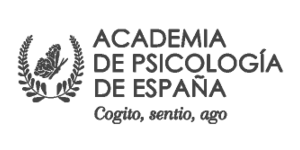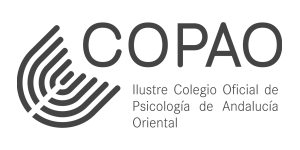Speaker

MIRANDA NOVAK
UNIVERSITY OF ZAGREB. CROATIA
Miranda Novak has a master’s degree in psychology and a PhD in Prevention Science. Her research interests are rooted in the interdisciplinary field of prevention science and mental health promotion, with special focus on youth mental health and positive development, specifically, socio-emotional learning, positive youth development and internalized problems prevention in children and youth. She is an associate professor at the Department of Behavioral Disorders at the Faculty of Education and Rehabilitation Sciences at the University of Zagreb.
From October 2023 she is a Head of Doctoral study program Prevention Science: Prevention of Mental and Behavioral Disorders and Mental Health Promotion. She is an active member and one of the founders of Laboratory for Prevention Research (PrevLab) that gathers group of scientists researching development and application of effective models for the transfer of prevention science into practice. Group gathered within the PrevLab has received two important international awards: 1) 2018 – Sloboda Medal Award of European Society for Prevention Research and 2) 2022 – The American Society for Prevention Research International Collaborative Prevention Research Award.
During 2019, she received a Fulbright scholar program scholarship that was awarded for her project “Adolescent mental health and wellbeing: Investing in healthy emotional functioning” at the Department of Clinical Psychology, University of Oregon. In her career so far, she has been an associate on 18 scientific research projects. She is currently leading a project »Testing the 5c framework of positive youth development: traditional and digital mobile assessment P.R.O.T.E.C.T.« funded by installation fund of Croatian Science Foundation.
During the last 5 years, Miranda Novak has published 15 original scientific papers out of which she was a leading author on 5 papers and 2 chapters in scientific monographs. During the course of last fifteen years, she has mentored more than 50 student master theses, successfully mentored 4 doctoral dissertations and is currently advising or co-advising 4 doctoral candidates. She has participated in more than 80 national and international conferences.
Her work related to wider social engagement in the community is well recognized. She has received an award of Education and Rehabilitation Faculty during 2021 for outstanding engagement in community during Covid-19 pandemic. From 2020 to 2023, she has also collaborated with UNICEF Office for Croatia who has funded web page for youth positive development, Pukotine (www.pktn.hr).
The Function of Positive Youth Development in Prevention of Internalizing Disorders

Adolescent mental health is increasingly recognized as a public health concern, with mental health issues accounting for 45% of overall health problems among adolescents. Recent data indicates that nearly 20% of adolescents have a diagnosable mental health condition. Over the past two decades, rates of mood disorders, anxiety, and suicidal symptoms have doubled.
Significant efforts are being made to prevent internalized disorders, and extensive international research highlights the effectiveness of the Positive Youth Development (PYD) framework in guiding investments in youth mental health. This framework serves as a foundation for promoting mental well-being and designing mental health programs. One of the most extensively studied approaches within PYD is the 5C model, introduced by Lerner et al., 2005, which identifies five key indicators: Competence (academic and social skills), Character (responsibility and moral awareness), Confidence (positive self-identity and self-esteem), Caring (empathy and compassion), and Connection (strong relationships with family, friends, and the community).
International studies have found that the relationship between these indicators and various aspects of mental health is not always consistent. For some adolescents, certain positive development traits—particularly high levels of caring and character—may even present risks. Higher levels of confidence, competence, and connection are generally linked to fewer internalized symptoms, while caring has been identified as a predictor of increased internalized symptoms. Additionally, lower levels of connection and confidence have been associated with heightened anxiety. When examining depressive symptoms, research has found that high levels of caring, along with low confidence and connection, are predictive factors.
This symposium will present international findings from Spain, Slovenia, and Croatia, demonstrating how the Positive Youth Development framework can be effectively applied to support adolescent well-being and address internalized mental health challenges—both through direct engagement with adolescents and by integrating these strategies into the classroom environment.












